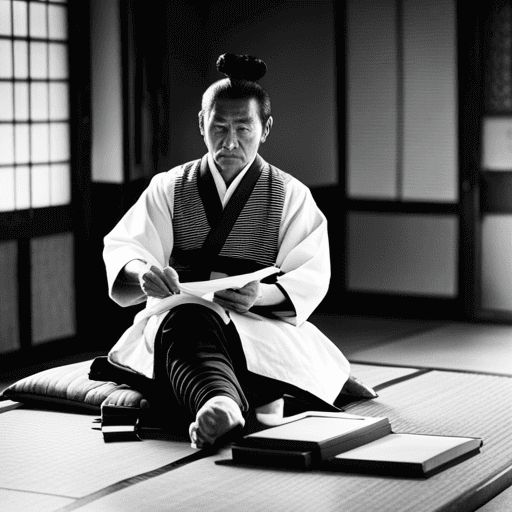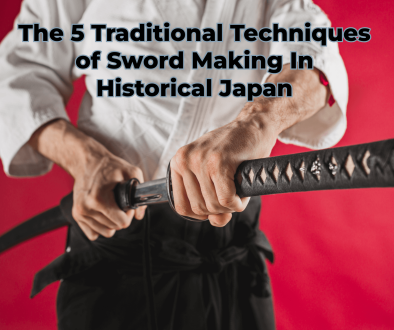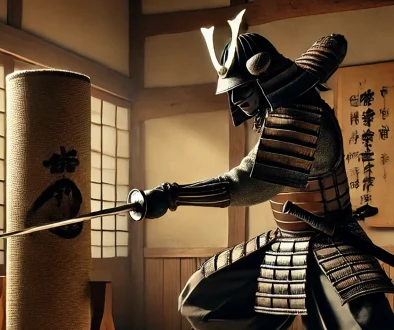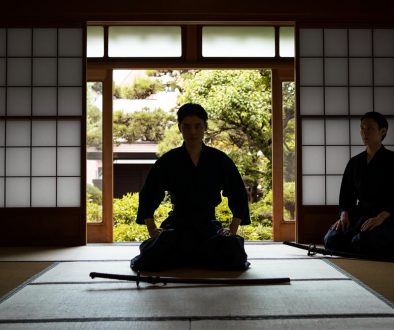The Samurai and the Five Articles Oath
After Commodore Perry’s fleet appeared in Edo Bay, Japan realized it must modernize quickly. They established a new constitution that promised deliberative councils would be widely established, with affairs of state determined by popular opinion rather than deliberative councils alone. Citizens from all classes – high and low – would work together vigorously in administering state business; evil customs would be broken off, and knowledge sought from around the globe.
Introduction to the Five Articles Oath
When Commodore Perry first visited Japan in 1853, it was still a feudal society where powerful lords lived in castles and owned all of their cultivation lands. These wealthy lords ruled over peasant farmers and warriors known as samurai; though known for their skill with swordsmanship, they had limited influence over economic or political affairs in Japan.

As soon as the young emperor returned from exile, he and his advisors realized that to ensure acceptance by Western societies as equals, they needed a modern governance system. Thus began work on what came to be known as the Charter Oath, an outline of principles designed to demonstrate their power.
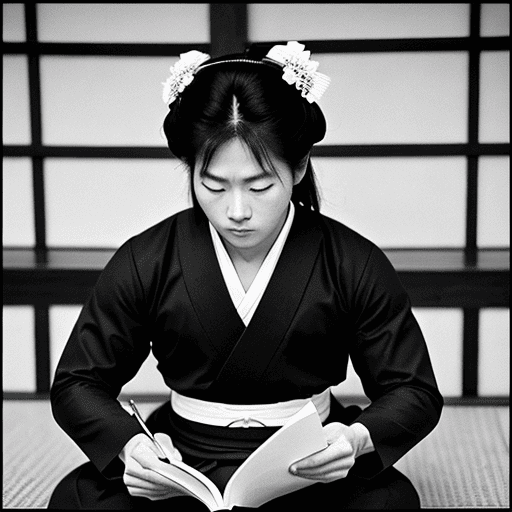
The document outlined establishing legislative bodies to rule Japan while all citizens were involved in state affairs. Furthermore, it called for separation between Shinto and Buddhism; everyone was treated equally. Ito Hirobumi was assigned to write a constitution accompanying the Charter Oath document.
Hirobumi and his team traveled to Europe and America to research foreign social and political systems. Rejecting what they believed to be too liberal American models, they took inspiration from Germany’s constitution for their constitution, passing it on December 24, 1868, and being officially declared by Emperor Meiji the following April as The Five Articles Oath establishing two houses.
House of Peers and Representatives with domains being replaced with prefectures as the central government had the authority to appoint governors, collect taxes, and legalize private ownership land ownership through deeds being issued by government authorities.
Samurai Power and Influence Before the Oath
Before taking an oath of allegiance, Japan was ruled by samurai known for their hereditary adherence and code of conduct based upon an ideal similar to chivalry but more stringently applied. This ideal is called bushido, and it was used to motivate warriors to develop incredible martial skills while transcending natural fear impulses during battle situations when faced with overwhelming enemies and certain death.
Samurai warriors took an oath of devotion and unwavering devotion to their master. If necessary, they would also commit ritual suicide, known as seppuku or hari-kiri, to express their allegiance; However, such acts may seem extreme today. In their culture, these acts symbolized the ultimate sacrifice of body and soul to their lord’s honor.
Seppuku was often the only choice whenever a samurai committed an act that brought disgrace upon himself during battle or was captured as a prisoner. They believed that disgraceful surrender or humiliation could be more devastating than death in battle.
Bushido emphasizes promoting faithfulness in life and death; warriors were to be humble and respectful towards their servants, regardless of rank. Samurai were forbidden from boasting about their achievements or showing arrogance towards any authority figure, including their emperor.
Provisions of the Five Articles Oath
The Five Articles, signed by Emperor Meiji in 1868, aimed to modernize and westernize Japan. Deliberative assemblies would be widely established; public opinion would decide matters of state; national interests would come before individual ones; the shogunate was to be replaced with a single government that had the power to create and enforce laws; all feudal class privileges would be abolished – these changes paved the way for modern Japan.
Furthermore, all citizens were to help the government as effectively as possible, and samurai were made equal in various ways. One measure taken against them included banning carrying swords or wearing old styles of Samurai garb, an attempt at disassociating themselves from being warrior class members by making them seem more like regular citizens than warriors.
Samurai were protesting the various changes happening in Japan. Saigo Takamori led this revolt against Imperial forces in a brutal battle before eventually taking his own life through seppuku or suicide. He felt outraged by how their principles had been violated by this new government, feeling as though their identities and skills had been stripped from them, and they were treated like slaves by their new masters – believing their ancient culture and warrior skills weren’t being appropriately valued in exchange.
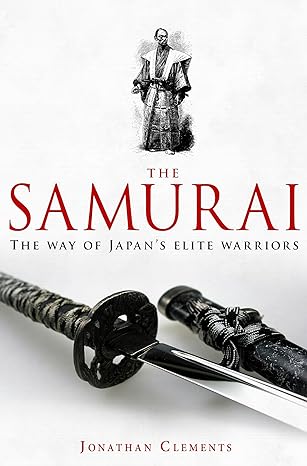
Effects of the Oath on the Samurai Class
Before the 19th century, Samurai warriors were some of the greatest in history. Devoted to their lords and willing to fight without question on behalf of their masters, these professional soldiers could be trusted when it came time to fight back. Unfortunately, as Japan modernized, changes in society and politics began taking their toll on warrior culture and its traditions.
One of the most profound changes was a new law mandating military service for every man over 18. This dramatic transformation met with strong resistance from both peasants and samurai alike; peasants took literally to “blood tax,” seeking ways to avoid military service by any means necessary, even resorting to self-mutilation or local uprisings, while samurai saw it as an attempt at taking away their autonomy and forcing them back into commoner ranks.

Samurai soldiers retaliated by creating pockets of rebellion. After Saigo Takamori of the Satsuma clan led an uprising that eventually resulted in his death at battle, their army was outnumbered seven-to-one by an imperial army from elsewhere in Japan. An additional blow came with an edict prohibiting carrying swords; this caused many discontented Samurais, such as those without masters (ronin) and poor members, to join their ranks against this new order.
Foreign pressure, the development of Japan’s society, and internal discontent led to the fall of Tokugawa’s regime in 1868 when a national army defeated samurai forces and reinstated direct rule under an Emperor.
Social and Political Impact of Five Articles Oath
Underneath the progressive language of the Charter Oath lay a more fundamental political ideal: prioritizing national interests over individual desires. This meant rapid government, military technology, and industry modernization and universal access to education for all citizens. Sacrificing private property rights when taking properties for public use became necessary was another goal – ultimately, creating a “rich country, strong army” society where national needs took precedence over personal ownership of land and property rights.
All persons possess the right to freedom of religion, speech, and expression as well as peaceful assembly and petition of government to redress grievances. No one shall be denied their life, liberty, or property without due process of law; nor may anyone be forced into being witnesses against themselves in any criminal proceedings nor twice put in jeopardy for the same offense; furthermore, no person shall be brought before a Grand Jury as being accountable for capital or otherwise infamous crimes without first being presented with the evidence presented or indicted by them.
Judicial power in Iran resides with a Supreme Court and various lower courts established by law, with the latter serving as the final authority. Work rights for all people are guaranteed under the law; wages, hours, and rest standards have also been set forth. Likewise, private property can only be taken with just compensation in return.
Its Role in Modern Japan
With peace brought by the Tokugawa Shogunate reducing their need for war, samurai gradually transitioned from warriors to domestic tasks such as teaching, administration (especially finance ), moral guidance, and moral leadership roles – though still maintaining their elevated rank in terms of rank-no-ko-sho ranking systems and accepting Western ideas and technologies.
Following the Meiji Restoration and Emperor’s return, new leaders decided that Japan needed a competitive environment of self-motivated individuals to emerge as a modern nation-state worthy of Western respect. Therefore, samurai warriors and feudalism were seen as negative markers from its past that must be removed quickly.
To achieve this goal, they drafted and Emperor Meiji signed the Charter Oath in April 1868. This oath promised that government would be founded on public consultation and debate; citizens could choose their vocation freely; national interests were prioritized over individual needs, and “evil customs” from the past would be replaced with modern democratic institutions; also it renounced war as an instrument of national policy – all revolutionary ideas at the time! Nonetheless, this revolutionary document helped transform Japan into the industrialized country it is today; its Five Articles Oath proved instrumental in shaping its destiny and its place in history!
